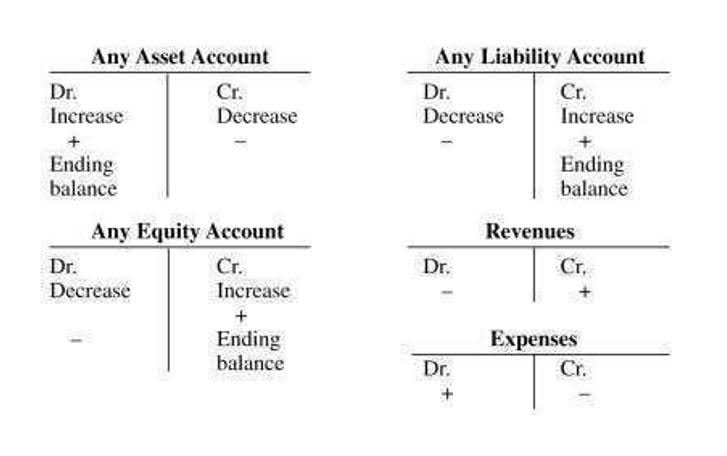
You should know how to express yourself competently, especially if you will be dealing with various people. Remember that you will also be gathering basic bookkeeping skills a lot of essential data, which means you need to have excellent communication skills to get the information you need. Being able to proficiently communicate with everyone involved, whether face-to-face or electronically, can make a big difference in your professional career.
Assets in Accounting
At least one debit is made to one account, and at least one credit is made to another account. You also have to decide, as a new business owner, if you are going to use single-entry or double-entry bookkeeping. You record transactions as you pay bills and make deposits into your company account. It only works if your company is relatively small with a low volume of transactions. At the end of the appropriate period, the accountant takes over and analyzes, reviews, interprets and reports financial information for the business firm.

Bookkeeping Basics
Bookkeeping involves the day-to-day recording of financial transactions, which includes documenting sales, expenses, payments, and receipts. Bookkeepers ensure that every financial transaction is accurately recorded in the business’s books, keeping an organized system to track financial activities. Bookkeeping is Bookstime the process of recording all financial transactions made by a business.
- To become certified, you need to pass a four-part examination, show two years of full-time bookkeeping experience or 3,000 hours of freelance or part-time experience, and sign a code of ethics.
- Remembering past transactions, patterns, and details without relying solely on documentation aids in the quick identification of anomalies.
- A few employers offer on-the-job training for bookkeepers by providing internships and placement programs.
- The integration of technology in financial processes requires bookkeepers to continuously update their skills and adapt to new software and systems.
- As a bookkeeper, you may also receive client payments and deposit them at your company’s financial institution.
- Additionally, free courses and certifications are a good place to get started as you eventually aim to tackle some of the more recognized certifications.
Cash Basis of Accounting
- A bookkeeper should be able to create a basic spreadsheet for everyday tasks like keeping track of an account’s details or listing a group of fixed assets.
- Are you someone new to the field of Financial Management or someone looking to upskill themselves?
- The course is completely free to complete, though you’ll need to pay a small fee ranging from £25 to £45 for a copy of the certificate.
- However, as a bookkeeper, you must note down everything and try to remember details related to your evidence.
- The data you are given may be very confidential, specifically the ones involving financial transactions.
Expenses are all the money that is spent to run the company that is not specifically related to a product or service sold. An example of an expense account is salaries and wages or selling and administrative expenses. If you are going to offer your customers credit or if you are going to request credit from your suppliers, then you have to use an accrual accounting system. Looking ahead, the job market appears promising for those in bookkeeping, accounting, and auditing, with an estimated 183,900 job openings projected annually over the next decade. Overall, the nature of an accountant is more complex, yet the two professions have several similarities when it comes down to the set of skills you need to perform.
Data-entry skills
Further, possessing business skills enhances a Bookkeeper’s ability to align financial practices with the overall goals and vision of the organisation. Unlock the essentials of Bookkeeping with this blog on 12 key Bookkeeping Skills. From ledger mastery to financial analysis, elevate your financial acumen effortlessly. Dive into our blog for a swift journey through the fundamentals of effective Bookkeeping. As with the Balance Sheet, bookkeepers are also responsible for tagging transactions under the right accounts in the Income Statement.

Understanding of accounting principles bookkeeping skills: Accounts payable and accounts receivable
A bookkeeper’s work helps to provide company owners and managers with the data to make key decisions that they wouldn’t be able to make without. In these programs, you can learn accounting principles, accounting software, payroll, how to prepare financial statements, and more. At the University of Potomac, we can lead you towards a successful career as a bookkeeper. Through our program in Bookkeeping Administration, we prepare you to take the QuickBooks Certified User certification exam. The American Institute of Professional Bookkeepers offers certification for experienced bookkeepers.

If you are dedicated to improving your bookkeeping skills and want to learn all about bookkeeping, there are several online platforms that offer free and paid online bookkeeping courses. Aside from gaining the necessary retained earnings balance sheet qualifications, it is also imperative that you further educate yourself by being updated with the changes and trends related to this profession. As technology continues to shape the domain of Bookkeeping, proficiency in using accounting software and navigating data entry processes becomes one of the indispensable Bookkeeping Skills.
- Choose software that is intuitive and easy to use, with good customer support and resources for learning.
- Balancing your books allows you to catch any errors or mistakes in your bookkeeping.
- A bookkeeper checks for errors when creating reports and managing the general ledger.
- Moreover, a transparent approach to financial transactions instils confidence and ensures the credibility of the Bookkeeper and the financial data they manage.
- To set up a budget, gather your financial data, such as income statements, balance sheets, and cash flow statements.
- Likewise, the Accounts Payable test asks them to solve specific calculations pertaining to accounts payable.
- Firms also have intangible assets such as customer goodwill that may be listed on the balance sheet.
- These are all critical for maintaining healthy cash flow and strong vendor relationships.
- The business owner has an investment, and it may be the only investment in the firm.
- The bookkeeping profession, like many others, is not without its challenges.
- When deciding whether to hire a bookkeeper or an accountant, consider your financial complexity and available resources.
- In addition, you must be able to handle any issues with a calm and productive approach.
- Online bookkeeping courses can teach you the basics of how to record and report financial information for businesses.
Bookkeepers often need critical-thinking skills to help interpret the story behind the numbers. This work provides the raw data off of which they build financial reports and forecasts. For example, they need to have a strong understanding of numbers and math, but they also have to be good problem-solvers with strong ethics to ensure the company doesn’t run afoul of regulations. Revenue refers to all the income that comes into the business after selling products and services.
Using these tests in conjunction with an in-person interview can give you a holistic view of your bookkeeping candidate. Another option to test for transparency is the Big 5 (OCEAN) test, which can give you insights into your candidate’s personality and how likely they are to be open and transparent at all times. Our Culture Add test enables you to customize your assessments to determine whether your candidates align well with the rest of your company. It can be difficult to assess how well a candidate’s values align with your company’s. The IFRS test measures a candidate’s ability to work according to International Financial Reporting Standards.









